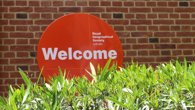
Lesson two: Data analysis
Exploring sustainability and research techniques
Key questions
How can we analyse interviews?
What is sustainability? What is development?
What is going on within the Sangihe Archipelago with regards to sustainability and development?
Background
Despite a national investment programme to develop seaweed farming throughout the archipelago, most of the pilot projects had not continued beyond a few months. While very successful in one site (Nain) in other locations people reported three key reasons for the failure:
-
Inappropriate siting of farms
-
Lack of on-going support
-
Crop failure due to predators and disease
Key respondents suggested the seaweed farming project had been too ‘top down’ to succeed. In addition, weather changes have had an impact on seaweed cultivation and land plantation yields, and villagers reported that fishing was becoming more difficult and the catches smaller. In response, some villages are enacting individualized solutions: seaweed farming, building small-scale tourist accommodation, constructing ice-carrying ships to transport fish catches to more distant towns, or value-adding by smoking tuna for export to Jakarta.
This lesson looks in detail at a section from an interview transcript in order to find out about the sustainability of seaweed farming and whether it offers a way of improving the Quality of Life of people living on the Sangihe Archipelago.
The technique used to analyse the transcript is called phenomenological research. More information on phenomenological research can be found in the article entitled ‘Phenomenology Research’ (this is at a high level and is aimed more at the teacher than the students, unless A-Level students; it provides teachers with additional background to the technique).
Starter
Watch the TED Education clip on climate change and sustainability.
The clip lasts 10 minutes. We would suggest watching just the first five minutes and 20 seconds. The challenge is for groups of students picked by the teacher to turn the clip in to a 20 second summary. The best summary gets a reward. Tell them all this before you start the clip and get them to plan their strategy for noting.
Then question the winning group on how they got to their summary. What was their process?
From the summaries given by the class decide on a definition of sustainability and how what Alex Steffen was saying links to it.
Main Activity
Give groups of students the interview transcript from the Hugging the Coast expedition. Students need to analyse it to find out whether seaweed farming in the Sangihe Archipelago is:
-
Sustainable
-
Contributing to the development of the area
Analysing the transcript:
-
Stage One: read through and get a feel for what is being said. Identify key themes and issues in the transcript
-
Stage Two: Collate all the themes and issues in the text and organise them with the aid of a mind-map or set of ‘post-it’ notes
-
Stage Three: Use the resulting list or mind-map to summarise what is being talked about in the interview (“the person being interviewed seems to be saying that...”)
-
Stage Four: Read back over the transcript and add in points which have not been brought out through this process
Plenary
Students are to summarise the technique they used to interrogate the transcript. They then need to write a paragraph explaining how they could use the data collection technique in future coursework.

